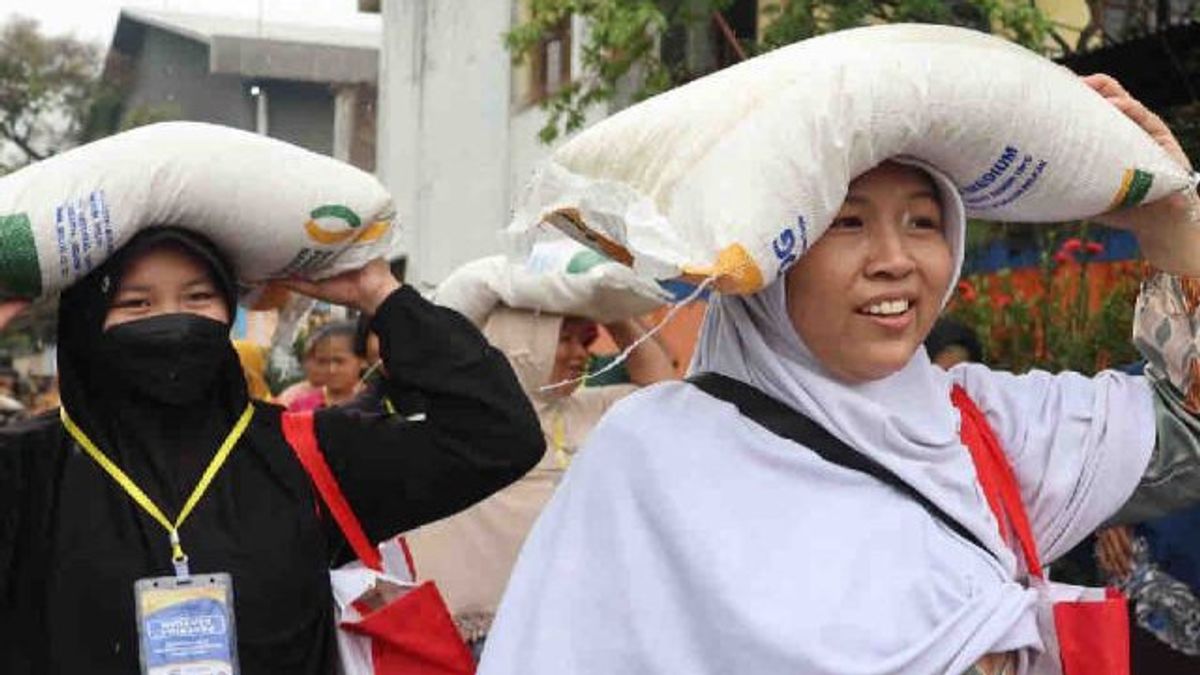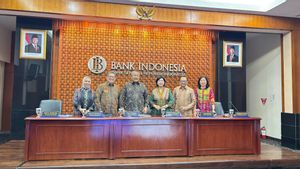JAKARTA - Perum Bulog has again distributed 10 kilograms of rice food assistance which will target 22 million beneficiary families (KPM) throughout Indonesia, in order to control inflation.
"Starting August 1, 2024, Perum Bulog will again carry out the government's assignment to distribute rice food assistance to 22 million beneficiary families or beneficiaries of rice aid," said President Director of Perum Bulog Bayu Krisnamurthi in a statement in Jakarta, quoted from Antara, Saturday, August 3.
Bayu said that based on data from the Central Statistics Agency (BPS), rice is recorded as the food component that affects the poverty line the most.
Based on data released on the official PBS website, the number of poor people in March 2024 was 25.22 million people, a decrease of 0.68 million people against March 2023 and a decrease of 1.14 million people against September 2022.
Therefore, Bayu continued, the increase in rice prices greatly affects vulnerable groups of people, as well as indirectly can lead to increased inflation.
"Recognizing this, Perum Bulog has again carried out the government's assignment to distribute this rice food aid," said Bayu during a working visit to Yogyakarta in the context of implementing Food Assistance in Argomulyo Village, Bantul Regency.
According to Bayu, with food assistance distributed by the government through Perum Bulog, it will ease the economic burden on the vulnerable people throughout Indonesia. Although not completely sufficient.
"They no longer need to be busy looking for rice. Because the government has provided 10 kg per two months, starting this August," said Bayu.
Food aid has begun in provinces whose regions have passed the verification process and validation of recipient data.
Currently, there are nine provinces where data on recipients has been verified, namely North Sumatra, West Sumatra, West Java, DI Jogja, Maluku, DKI Jakarta, Southeast Sulawesi, Central Kalimantan and Riau. Other provinces will soon receive Food Assistance in the next one or two days.
In addition, said Bayu, BPS said that there had been an annual inflation of 2.84 percent in May 2024 and the biggest contributor to inflation was the food, beverage and tobacco group.
Referring to Mandiri Lending Index (MSI) data, Bayu continued, even in the middle class economy, food spending increased dramatically from 13.9 percent to 27.4 percent of total expenditure.
This of course reduces people's purchasing power in other ways, affects inflation and in the end, can reduce the level of community welfare.
Bayu emphasized that according to the vision and transformation of Perum Bulog, his party is committed to continuing to contribute to the welfare of the Indonesian people.
"Therefore, food assistance is not only important for meeting the needs of low-income people, but will also contribute to controlling inflation in the middle of the current famine season," said Bayu.
SEE ALSO:
Indonesian Food Expert Tito Pranolo said that there are two benefits from the distribution of rice food assistance by Perum Bulog. The first benefit is the stabilization of rice prices.
"There is no high volatility in rice prices, along with food assistance. This is in accordance with supply demand law," said Tito.
Second, community groups who need the most can get access to food to meet their daily needs.
Chairman of the Association of Agricultural Economy (Perhepi) Bustanul Arifin assessed that when food assistance arrives on time, people can access their basic needs without having to face any uncertainty or delays that could disrupt consumption patterns.
"With consistent food assistance, people can plan their consumption better," said Bustanul.
The English, Chinese, Japanese, Arabic, and French versions are automatically generated by the AI. So there may still be inaccuracies in translating, please always see Indonesian as our main language. (system supported by DigitalSiber.id)
















